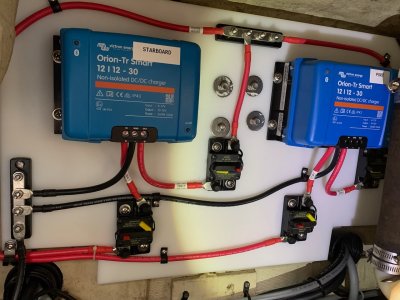trophywife
Crew Member
i want to understand the pros and cons of changing my boats over to lithium. smaller? more cranking amps? i am no sparky.

I've also given up on Canadian Tire batteries recently. I only buy them if I need one at like 8:00pm and it's the only store open.I have been thinking about this too.
I used to just use a Canadian Tire Nautical battery for everything, cars and boats. They lasted for years but the last couple I bought only last a year or so, less lead maybe.
But the warranty! New one every year.I've also given up on Canadian Tire batteries recently. I only buy them if I need one at like 8:00pm and it's the only store open.
There’s no time to deal with warranty issues every year. I’d rather buy qualityBut the warranty! New one every year.
I remove them for winter so new big deal.There’s no time to deal with warranty issues every year. I’d rather buy quality
Checked the specs of your unit, and it draws 650 mA, or 0.65 A. With a 30 ah battery you could run it for 36 hours and discharge the battery 80%Im thinking of getting one just to run my sounder. would 30 amp hours be enough to run the sounder for a day on the water? humminbird 788
sounder is currently hooked up straight to the main battery but every time i crank the engine it freezes the sounder then i have to disconnect/reconnect to the battery to get the sounder running again. I think my main battery is nearing its end of life but is still working for cranking purposes.